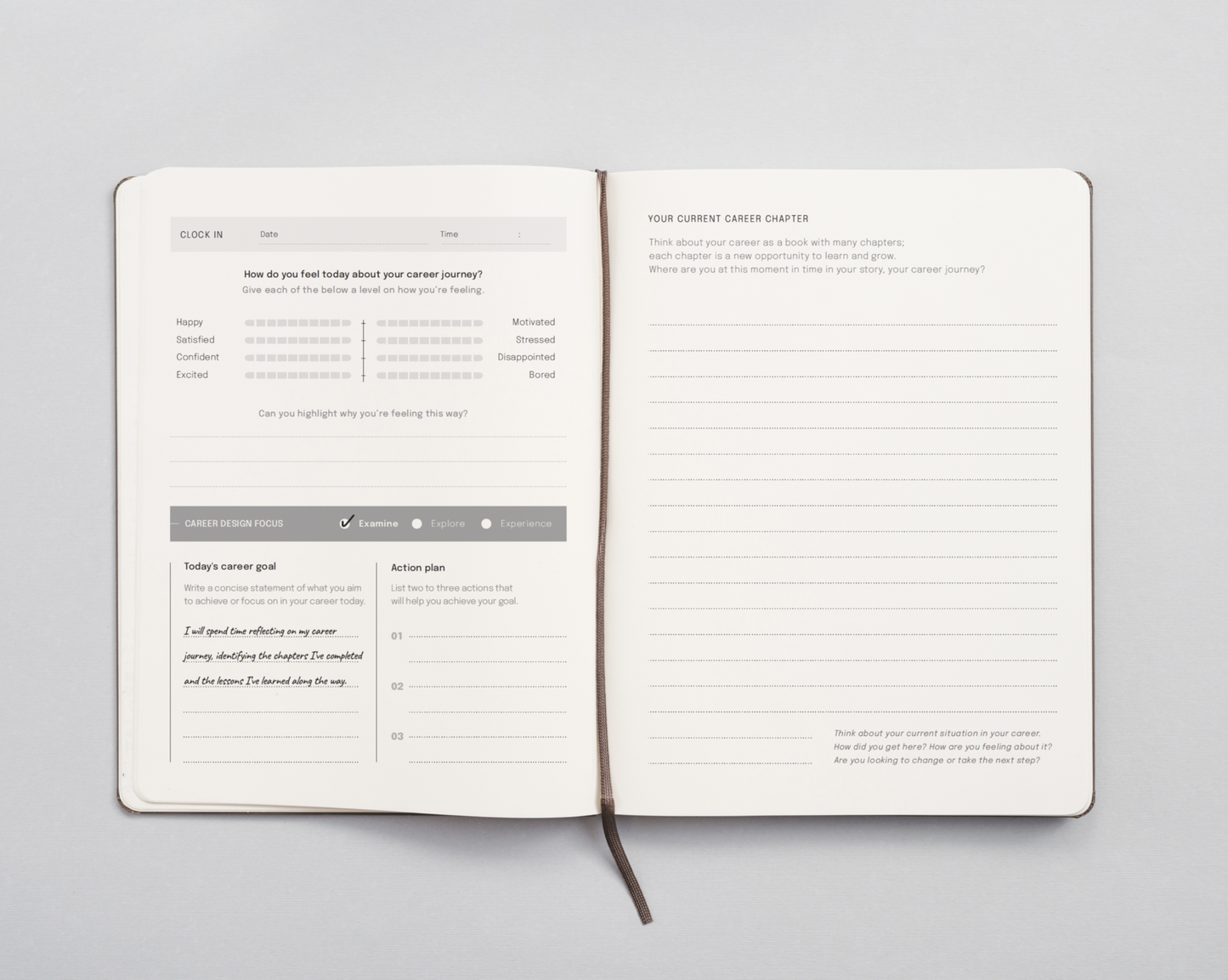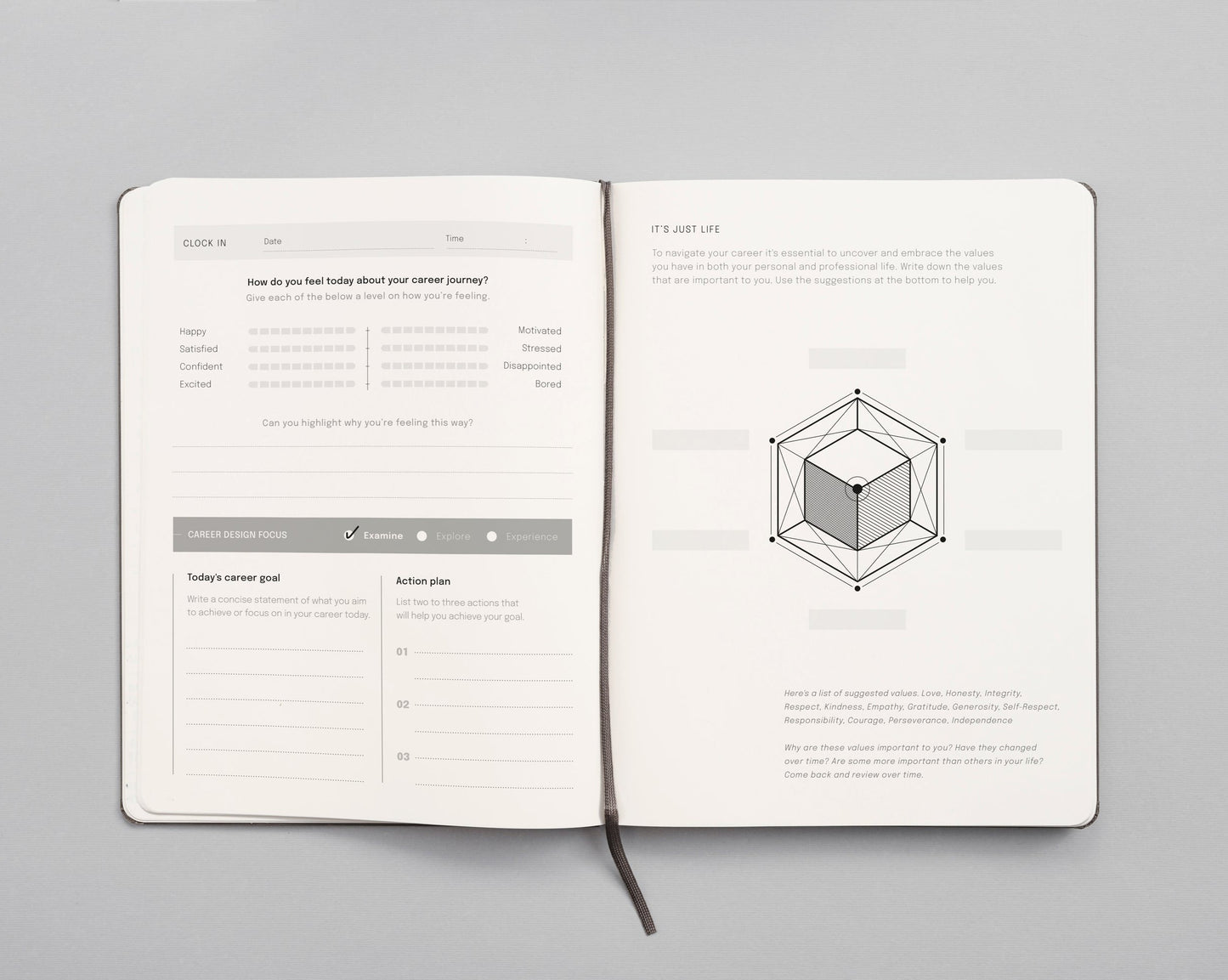Welcome to the Career Habit Pro Series, where we empower individuals to take charge of their careers through guided journaling. In this article, we'll explore the concept of a career change. We'll break down what it means and when it can be a route to consider for your career.
What Exactly is a Career Change?
A career change is a big shift in your professional journey. It's when you decide to move from one job, industry, or field to another. This shift can be driven by various reasons like wanting more fulfillment, seeking new challenges, or even changes in the job market.
Why Consider a Career Change?
You might be feeling stuck in your current job and it might be time for a change. Here are some signs:
- You're not happy or fulfilled in your current role.
- Your interests and priorities have evolved, and your job no longer aligns with them.
- Changes in the industry or company have made your current role less secure or appealing.
Transitioning to a new career path can be intimidating. Yet, if you prepare yourself for this change, it can be personally and professionally rewarding. Here's why:
- Personal Satisfaction, Finding a job that aligns with your passions and values can bring a sense of fulfillment and purpose to your work life.
- Professional Growth: Embracing new challenges and learning opportunities in a different field can help you develop new skills and expand your expertise.
- Adaptability: Changing careers teaches you to be adaptable and resilient in the face of change, valuable qualities in today's fast-paced world.
- Networking Opportunities: Moving into a new industry means meeting new people and expanding your professional network, which can open doors to exciting opportunities.
How to Navigate a Career Change
Are you considering to make a change? Here's how to get started:
-
Self-Reflection: Take time to think about what you want in your next career chapter. Consider your skills, interests, and values.
-
Research: Explore different industries and roles that interest you. Talk to people in those fields to learn more about what it's like.
-
Skill Building: Identify any skills you need to succeed in your new career and find ways to acquire them, whether through classes, online courses, or on-the-job training.
-
Networking: Build relationships with professionals in your desired field. They can offer valuable insights and advice as you navigate your career change.
- Strategic Planning: Create a plan outlining your career goals and the steps you need to take to achieve them. Set realistic timelines and milestones to keep yourself on track.
The Power of Journaling During Career Transitions
During times of career transition, journaling can be a powerful tool for reflection, goal-setting, and tracking progress. Our guided career journal provides a structured framework for self-reflection, career exploration and learning how to land your next career opportunities.
By journaling regularly, you gain clarity on your goals, identify areas for growth, and stay accountable to your action plans.
Whether you're contemplating a career change or navigating the complexities of a new role, our career journal offers support and guidance every step of the way.
Embrace the Journey
In conclusion, a career change can be a rewarding and transformative experience. By approaching it with an open mind, determination, and a willingness to learn, you can navigate this transition successfully and find fulfillment in your new career path. Remember, your career journey is a continuous evolution, and each step you take brings you closer to your goals.








